Official support for Grey Parrots.

In October 2016, three thousand delegates gathered in Johannesburg for the CITES Conference of Parties to decide how wildlife should be traded around the world. Among the heated debates on rhino horn, elephant ivory and lion hunting, the fate of another iconic African species hung in the balance: that of the Grey Parrot Psittacus erithacus.
GREY PARROTS are one of the best-known pet bird species, their playful antics and cheerful whistles familiar in homes the world over. Their popularity has been fuelled by a reputation of being one of the best talkers and most intelligent of animals. After all, it was a West African Grey Parrot, going by the name of Polynesia, that taught Dr Dolittle how to talk to all the other animals.
Although Grey Parrots have been trained in some impressive cognitive tasks, adding numbers up to eight and recognising shapes and colours, they are not exceptional among parrots. However, popular folklore has propelled them to the top of the pecking order in the minds of many. Recently a Grey Parrot, aptly named Einstein, came close to winning the reality tele vision show America’s Got Talent. His YouTube videos have received more than 13 million hits. While these parrots are clearly impressive birds, there is another reason for their ubiquity in cages around the world: they can be trapped in the wild in large numbers with great efficiency, which makes them readily available and relatively affordable.
This story is from the {{IssueName}} edition of {{MagazineName}}.
Start your 7-day Magzter GOLD free trial to access thousands of curated premium stories, and 9,000+ magazines and newspapers.
Already a subscriber ? Sign In
This story is from the {{IssueName}} edition of {{MagazineName}}.
Start your 7-day Magzter GOLD free trial to access thousands of curated premium stories, and 9,000+ magazines and newspapers.
Already a subscriber? Sign In

EXPLORING NEW HORIZONS
Keith Barnes, co-author of the new Field Guide to Birds of Greater Southern Africa, chats about the long-neglected birding regions just north of the Kunene and Zambezi, getting back to watching birds and the vulture that changed his life.

footloose IN FYNBOS
The Walker Bay Diversity Trail is a leisurely hike with a multitude of flowers, feathers and flavours along the way.
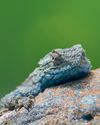
Living forwards
How photographing birds helps me face adversity
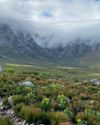
CAPE crusade
The Cape Bird Club/City of Cape Town Birding Big Year Challenge
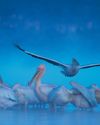
water & WINGS
WATER IS LIFE. As wildlife photographer Greg du Toit knows better than most.
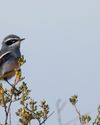
winter wanderer
as summer becomes a memory in the south, the skies are a little quieter as the migrants have returned to the warming north. But one bird endemic to the southern African region takes its own little winter journey.
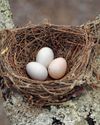
when perfect isn't enough
Egg signatures and forgeries in the cuckoo-drongo arms race

Southern SIGHTINGS
The late summer period naturally started quietening down after the midsummer excitement, but there were still some classy rarities on offer for birders all over the subregion. As always, none of the records included here have been adjudicated by any of the subregion's Rarities Committees.

flood impact on wetland birds
One of the features of a warming planet is increasingly erratic rainfall; years of drought followed by devastating floods. Fortunately, many waterbirds are pre-adapted to cope with such extremes, especially in southern Africa where they have evolved to exploit episodic rainfall events in semi-arid and arid regions. But how do waterbirds respond to floods in areas where rainfall - and access to water - is more predictable? Peter Ryan explores the consequences of recent floods on the birds of the Western Cape's Olifants River valley.
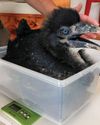
a star is born
It’s every producer’s dream to plan a wildlife television series and pick the right characters before filming.